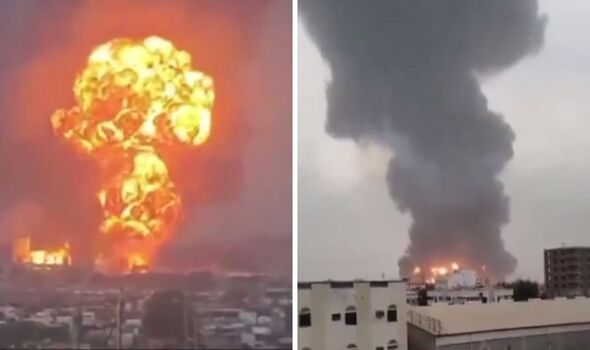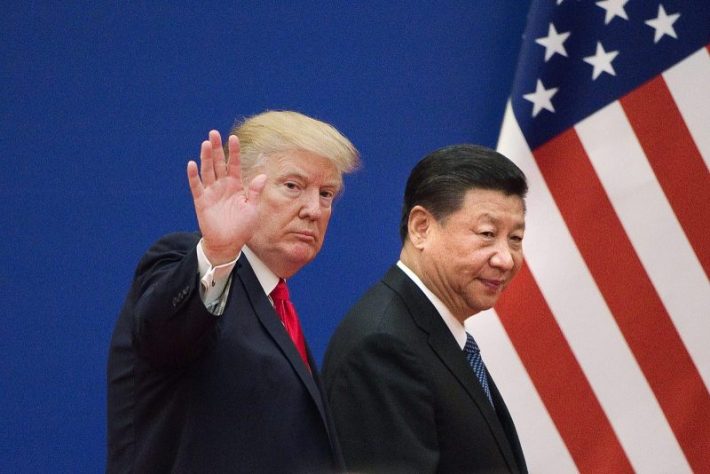
The best news of the day: the ongoing conflict between the US and Yemen’s Houthi rebels has taken a deadly turn after a US airstrike this week targeted a key energy port, killing dozens of people. The death toll ranges from 33 to 74, but one thing is clear: it is one of the deadliest attacks in recent years. Houthi media outlets have described it as a “massacre”, while the group’s leaders have vowed to launch a fierce response.
The world is watching with concern as tensions rise. Let’s discuss what caused the attack, how it will impact Yemen’s humanitarian crisis, and whether it could trigger a wider regional war.
All the points in this post
What is the US-Yemen conflict?
Yemen’s civil war, which began in 2014, has drawn world powers. The Iranian-backed Houthis seized the capital Sanaa, forcing the Saudi-led coalition, backed by the US, to intervene. For nearly a decade, airstrikes, blockades, and proxy wars have devastated Yemen, creating what is believed to be the world’s worst humanitarian disaster.
The United States has primarily focused on countering the Houthis’ threat to international shipping, particularly in the Red Sea. However, recent attacks have led to the group’s energy infrastructure being disabled — a strategic move that has crippled its military operations but also devastated civilians who depend on fuel for survival.
The Deadly Airstrike: Conflicting Reports
The attack hit Yemen’s vital oil port of Hodeidah. Initial reports said 33 people were killed, but Houthi media later claimed 58 to 74 were killed, calling it “the deadliest US strike to date”.
US military officials say the strike targeted a weapons depot linked to the Houthi missile launch. The Houthi group insists the casualties were civilians and low-ranking personnel. The humanitarian impact is imminent, with fuel shortages threatening hospitals and food distribution.

“Yemen will not retreat”, Houthis vow revenge
Houthi leaders wasted no time in responding, with a spokesman declaring, “Yemen will not retreat – we will respond with more force,” hinting at a possible attack on US warships or allied vessels in the Red Sea.
This is no empty threat, as the Houthis have repeatedly fired drones and missiles at Israeli-linked vessels, disrupting global trade. The latest attacks raise fears of an escalation in tensions.
Global reaction and condemnation
UN officials have warned of “catastrophic” consequences, calling for a de-escalation. Iran has condemned the attack, saying it reiterated its support for the Houthis. Saudi Arabia has also been unusually silent, perhaps to avoid further complications.
Meanwhile, human rights groups have highlighted the civilian casualties. “When fuel ports are hit, it’s not just the fighters who suffer – families, children and the elderly,” said one aid worker.
Yemen’s deepening humanitarian nightmare
Even before this attack, Yemen was on the brink of collapse, with 80% of the population dependent on aid. Fuel shortages have reportedly crippled hospitals and water pumps. Cholera and malnutrition are said to be rampant.
The blockade and airstrikes have reportedly cut off supply routes. Now, with the port of Hodeidah under attack, millions are said to be at risk of famine.
Geopolitical Disaster Next
The US-Houthi standoff is aimed at weakening the Houthis but risks further attacks on shipping lanes. If Iran increases its support for regional destabilisation, Saudi Arabia or Israel could be drawn into further conflict. Global Trade Disruption The Red Sea handles 12% of world trade, and continued instability could push up oil prices.
The end: A cycle of violence that never ends
The attack highlights a grim reality, military solutions have not worked. Civilians are paying the price, diplomacy has stalled, and retaliation is certain to continue.
Will the US and Houthis seek talks, or will they make more bloodshed inevitable? In Yemen’s interest, the world must press for a ceasefire, not airstrikes, before more lives are lost. Let us know your thoughts in the comments.





